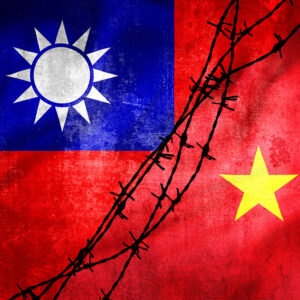“All happy families are alike, but every unhappy family is unhappy in its own way.”
Maybe we should go back to that maxim about happy and unhappy families at the opening of “Anna Karenina,” the Russian classic by Leo Tolstoy. To paraphrase Tolstoy, all happy victors in war are alike, but every unhappy loser is unhappy in his or her own way. Let us consider how wars have ended since the victory of the allied powers over Nazi Germany and imperial Japan in 1945.
The Taliban, after their uncontested success in Afghanistan, were overjoyed while the U.S.-supported Afghan forces were destroyed, scattered, exiled and imprisoned. In Vietnam, after the defeat of the U.S.-backed South Vietnamese in 1975, the North Vietnamese rejoiced in victory, forcing thousands into “re-education” camps from which many never emerged. Nearly a million fled on risky journeys by sea, in which thousands drowned.
In the Korean War, South Korea and the U.S. turned back invasions first by the North Koreans and then the Chinese. South Korea has emerged as an incredibly prosperous country, recognized everywhere as economically and culturally productive and creative. North Korea has plunged into poverty, made worse by a terrorist regime that has killed and imprisoned thousands of its own people while sinking much-needed funds into nuclear weapons and missiles.
Considering the history of the two Koreas over nearly seven decades since the Korean War armistice was signed in July 1953, it’s silly to argue the war isn’t over just because it ended in a truce rather than a peace treaty. This exercise in semantics only provides an excuse for North Korea and its pro-North friends to undermine the truce with demands for a treaty calling for the destruction of the historic alliance between the Republic of Korea and the United States and the withdrawal of U.S. troops.
In Ukraine, it’s too early to say who is winning or losing. The Russians have suffered huge setbacks, but Russia is a vast country. The Germans in 1941 pushed the Soviet army to the edge of Moscow. A monument marks the exact point where the Nazi invasion was halted in January 1942. President Vladimir Putin’s failure to achieve a quick victory does not mean he’s about to agree to a lasting compromise.
Russian offensives may wax and wane, but Putin is not likely to talk peace on any terms but his own. The worst mistake NATO, led by the United States, could make would be to fall for a deal under which Ukraine concedes territory overrun by the Russians and then agree to a ceasefire and loss of foreign assistance. The Russians are still waiting to take over what Moscow sees as belonging to the greater Russian empire.
If the government of President Volodymyr Zelensky was forced to accept a false peace, Ukraine, like South Vietnam, would be the unhappy loser. Putin would gear up for fresh offensives, carving out ever more Ukraine territory whenever he sensed a weakening of the NATO alliance. Victory may not be in sight for Ukraine, but compromise and defeat are not options.
Much closer to Korea, Taiwan also faces increasing threats from China. Just recently, the Chinese staged massive aerial war games within Taiwan’s air defense identification zone. The purpose, of course, is intimidation, a warning that the Chinese may invade the island province that they’ve been claiming ever since the victory of Mao Zedong’s Red Army over the Chinese mainland in 1949.
Taiwan is now an island of peace, independently governed by an elected president who is reluctant to proclaim independence for fear of thoroughly upsetting the Chinese. China’s President Xi Jinping, whose mode of governance bears an unhappy resemblance to that of Putin, might decide the time had come to advance from war games to a full-scale invasion.
As of now, more than 70 years after nationalist Generalissimo Chiang Kai-shek led his defeated forces across the Formosa Straits from the mainland, Taiwan enjoys much the same sense of freedom as South Korea. Mao’s victory on the mainland was a tragedy for his enemies, but Taiwan has overcome terrible problems, including decades of martial law in which several thousand Taiwanese, at odds with Chiang, were executed.
Resentment no doubt festers between Taiwanese and those whose families stormed over from the mainland, but basically the island is free, prosperous and democratic. That’s all the more reason for the United States to stand by Taiwan though Washington has formally recognized Beijing since 1978. As elsewhere, democracy and freedom are at stake.

